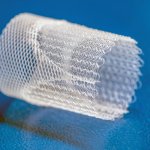
News • Novel manufacturing technique
3D printed heart valves to support tissue growth
Researchers have developed 3D printed artificial heart valves designed to allow a patient’s own cells to form new tissue.

Researchers have developed 3D printed artificial heart valves designed to allow a patient’s own cells to form new tissue.
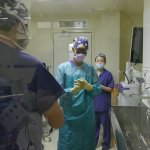
Surgeons completed the first documented ‘net zero’ operation in the NHS, combining evidence-based approaches and documents using a carbon output calculator developed specifically for this task.

Researchers have developed an ultrasound-guided cancer immunotherapy platform that generates systemic antitumor immunity and improves the therapeutic efficacy of immune checkpoint blockade.

The research team Liver4Life has treated an originally damaged human liver in a machine for three days outside a body and then implanted the recovered organ into a cancer patient.
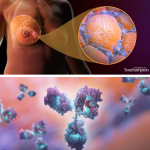
"Crown-like structures" surrounding breast tumors in overweight and obese patients could hinder their response to therapy. The findings of this study could potentially be used to improve personalized treatment for patients.
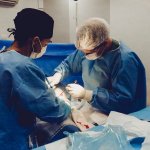
Biomaterial engineers have developed the first-ever hydrophobic fluid, which instantly displaces body fluids surrounding an injury allowing for near-instantaneous gelling, sealing, and healing of injured tissue.
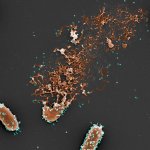
Bacteriophages – viruses that kill bacteria – could be a solution for fighting antibiotic-resistant pathogens, French researchers have developed a model to better predict their efficacy.

Transcatheter Aortic Valve Implantation (TAVI) is a less invasive procedure that is just as effective as open-heart surgery in treating severe symptomatic aortic stenosis, a new study shows.
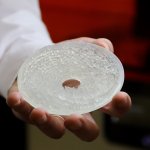
A research team in Spain and the US has created 3D-printed acoustic holograms to improve the treatment of diseases like Alzheimer's and Parkinson's, among others.

Scientists at the La Jolla Institute for Immunology discover new drug target for severe asthma and fibrosis.
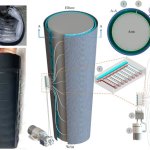
Microfluidic chip inflates and deflates balloons in a sleeve to promote fluid flow in the lymphatic system.

Informing a patient about a cancer diagnosis is never an easy task. An Austrian patient has developed a solution that will help radiologists break the bad news as smoothly as possible and guide women through their patient journey.
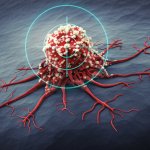
Personalised screening, data-driven aproaches: In a dedicated press conference in Paris, French oncologists presented promising research that might bring hope for many cancer patients.

Involving cancer patients more closely in the treatment pathway can modify care and deliver better outcomes. Carefully designed questionnaires and treatment response monitoring are helping clinicians take therapies to a new level.
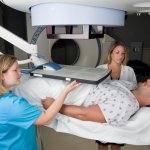
A different way of treating people with prostate cancer will be investigated by researchers at the University of Leeds in a new clinical trial funded by Yorkshire Cancer Research.
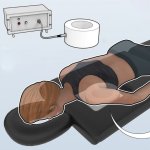
A team of researchers from Singapore has developed a novel magnetic therapy that serves as an effective companion therapy to chemotherapy to enhance treatment outcome for breast cancer.

A method for delivering genetic material to the body that has proven useful in Covid-19 vaccination is now being tested as a way to repair damaged heart muscle after a heart attack.

Mental disorders are among the leading causes of ill-health and disability worldwide, and the demand for a viable solution to battle the mental health crisis has risen. The past two decades have witnessed the emergence of extended reality (XR) as a tool for investigation, assessment, and management in mental healthcare.

Finding the right antibiotic dose is akin to a Goldilocks problem: give too little, and the infection will persist; too much, and side-effects will override the benefits of the therapy. To get it “just right”, Prof Dr Birgit Koch talks about dosing optimisation in the clinical setting.
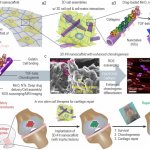
Researchers have established an injectable hybrid inorganic nanoscaffold-templated stem cell assembly and applied it to the regeneration of critically-sized cartilage defects.
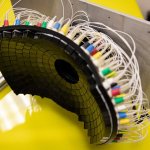
Noninvasive sound technology breaks down liver tumors in rats, kills cancer cells and spurs the immune system to prevent further spread.
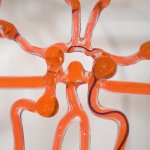
Engineers at the Massachusetts Institute of Technology (MIT) have developed a telerobotic system to help surgeons quickly and remotely treat patients experiencing a stroke or aneurysm.

A new study enables developers to determine vaccine safety via smart sensors that measure objective physiological parameters. This could end the reliance on subjective reports of study participants.

Delivering a drug directly inside a lesion using minimally invasive procedures opens up new perspectives for patients and medical teams. At ECR Overture, experts looked at how to best join forces to advance the field of interventional oncology.
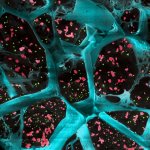
A new biodegradable gel improves the immune system’s ability to keep cancer at bay after tumors are surgically removed.